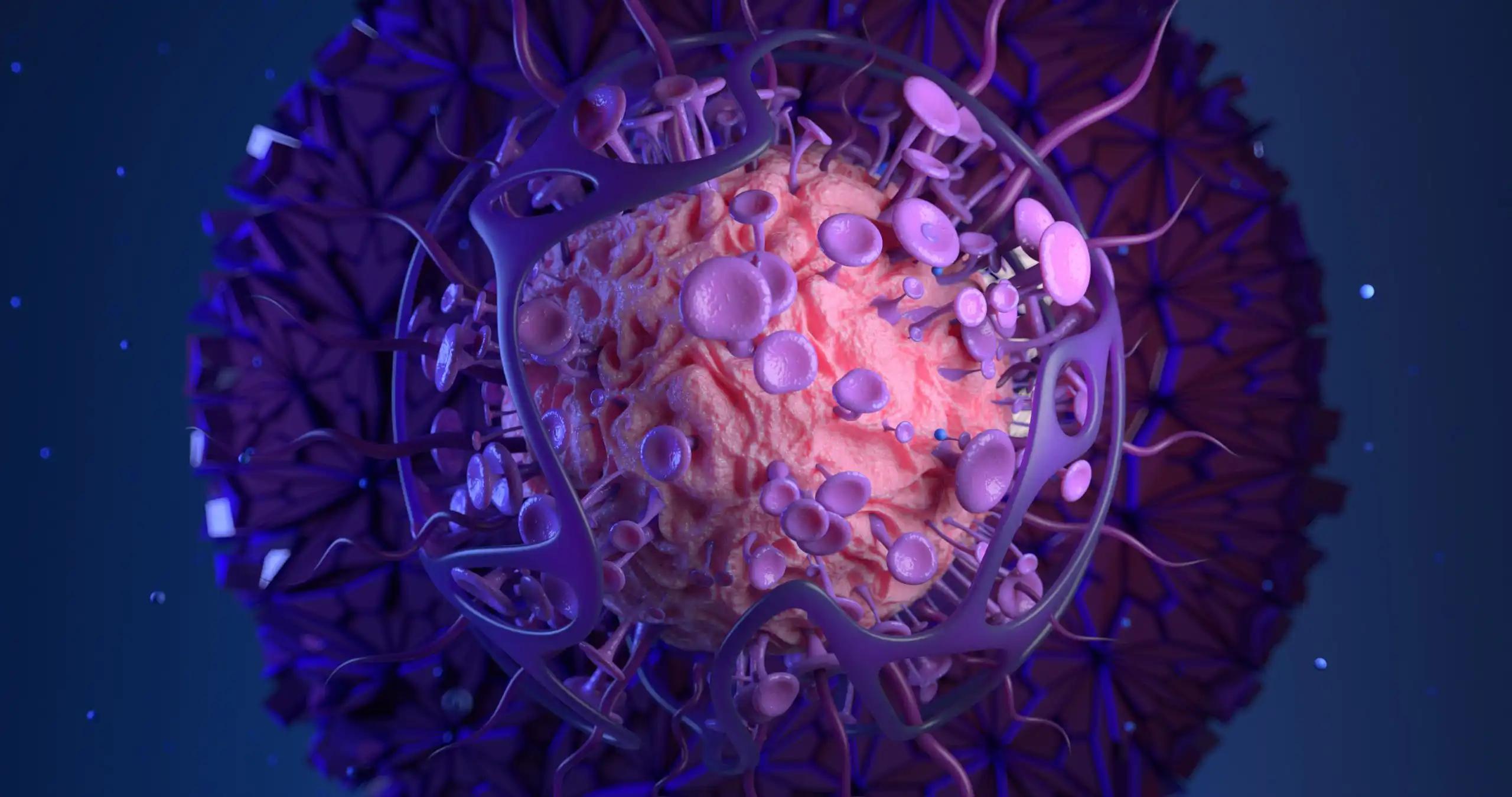KEY TAKEAWAYS
- The phase III study aimed to describe and characterize the clonal architecture of R/R TFHL.
- The study suggested that CH is prevalent in TFHL, and most are directly related to the disease.
Follicular helper T-cell lymphoma (TFHL) arises from the oncogenic transformation of a TFH cell, influenced by gene mutations related to epigenetic regulation (TET2, DNMT3A, IDH2) and T-cell signaling (RHOA). While evidence of TET2 and DNMT3A mutations in B cells, myeloid cells, and hematopoietic stem cells has led to the hypothesis that TFHL can develop through clonal hematopoiesis (CH) in a multi-step manner, the frequency, extent, and significance of this CH in TFHL oncogenesis remain ambiguous.
To explore the clonal structure of refractory or relapsed (R/R) TFHL, bone marrow specimens were gathered from patients (pts) who participated in the ORACLE trial. This phase 3 study compared the effectiveness of oral 5-azacitidine (CC-486) to that of standalone chemotherapy in R/R TFHL cases. Bone marrow (BM) cells from an initial cohort of 32 pts were cultured in a methylcellulose supplemented with standard growth factors. BFU-E, CFU-GM, and CFU-GEMM were counted and separately harvested.
Next, 517 colonies from these 32 pts underwent individual genotyping through next-generation sequencing (NGS). The NGS applied a capture-based panel (with a 1% limit of detection) targeting 43 genes frequently mutated in CH and/or TFHL, comprising TET2, DNMT3A, IDH2, and RHOA. Concurrently, the bulk BM cells from 29 pts were sequenced using the same NGS panel for comparison with mutations found in cfDNA (31 pts) and tumor biopsies (28 pts). Ultimately, 30 TFHL pts had sufficient data to evaluate the frequency of CH and the phylogenetic link between myeloid progenitors and TFHL.
Genotyping was successful for 471 out of 517 colonies, achieving a 91% success rate. In 29 of 30 pts (97%), clonal hematopoiesis (CH), identified by at least one somatic mutation in a myeloid colony or in total bone marrow cells, was present. Among these 29 pts, 26 had mutated myeloid colonies, with a median mutated colony percentage of 21% (interquartile range from 7% to 53%). Seven of these pts displayed subclonal architecture, averaging 3 distinct clones. The most common mutations were DNMT3A and TET2, found in the bone marrow of 80% and 60% of the pts, respectively.
Researchers verified the absence of RHOAG17V and IDH2R172 mutations in the BM cells of TFHL pts. Of the pts with detectable TET2 mutation in CH, 17 out of 18 also had TET2-mutated TFHL. Conversely, only 13 out of 23 pts with DNMT3A mutated CH had DNMT3A mutated TFHL. Based on the mutation distribution in the bone marrow and lymph nodes, researchers categorized the pts into three groups: 53.3% had TFHL that was clonally derived from CH (CH-related TFHL), 43.3% had TFHL and clonally distinct CH (CH-unrelated TFHL), and one patient (3.3%) had no detectable CH. No major difference in patient outcome was noticed between CH-related or unrelated TFHL. However, the limited sample size and variability in treatment protocols constrain these findings.
To sum up, CH is commonly observed in TFHL, with over half directly related to TFHL.
Source: https://onlinelibrary.wiley.com/doi/10.1002/hon.3163_69
Clinical Trial: https://classic.clinicaltrials.gov/ct2/show/NCT03593018
Loyaux, R., Sako, N., Quang, V.T., Bachy, E., Morschhauser, F., Cartron, G., Gressin, R., Daguindau, N., Le Gouill, S., Wolfromm, A., Bouabdallah, K., Ysebaert, L., Casasnovas, O., Robe, C., Delfau, M., Dupuis, J., De Leval, L., Gaulard, P., Sloma, I. and Lemonnier, F. (2023), CLONAL ARCHITECTURE OF RELAPSED OR REFRACTORY FOLLICULAR HELPER T-CELL LYMPHOMA: AN ANCILLARY STUDY OF THE ORACLE TRIAL, A LYSA STUDY. Hematological Oncology, 41: 108-110. https://doi.org/10.1002/hon.3163_69



